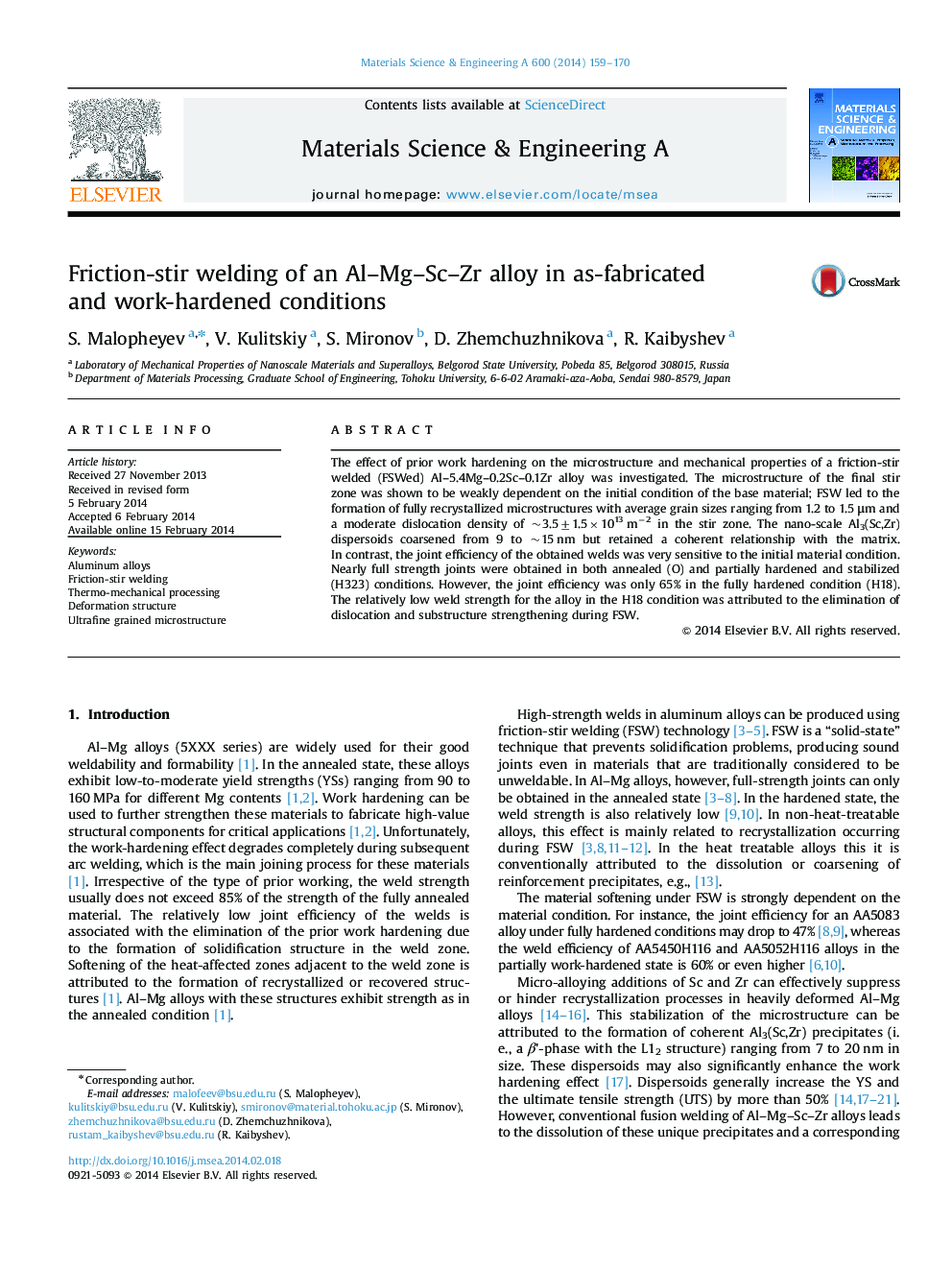| Article ID | Journal | Published Year | Pages | File Type |
|---|---|---|---|---|
| 7981214 | Materials Science and Engineering: A | 2014 | 12 Pages |
Abstract
The effect of prior work hardening on the microstructure and mechanical properties of a friction-stir welded (FSWed) Al-5.4Mg-0.2Sc-0.1Zr alloy was investigated. The microstructure of the final stir zone was shown to be weakly dependent on the initial condition of the base material; FSW led to the formation of fully recrystallized microstructures with average grain sizes ranging from 1.2 to 1.5 μm and a moderate dislocation density of ~3.5±1.5Ã1013 mâ2 in the stir zone. The nano-scale Al3(Sc,Zr) dispersoids coarsened from 9 to ~15 nm but retained a coherent relationship with the matrix. In contrast, the joint efficiency of the obtained welds was very sensitive to the initial material condition. Nearly full strength joints were obtained in both annealed (O) and partially hardened and stabilized (H323) conditions. However, the joint efficiency was only 65% in the fully hardened condition (H18). The relatively low weld strength for the alloy in the H18 condition was attributed to the elimination of dislocation and substructure strengthening during FSW.
Keywords
Related Topics
Physical Sciences and Engineering
Materials Science
Materials Science (General)
Authors
S. Malopheyev, V. Kulitskiy, S. Mironov, D. Zhemchuzhnikova, R. Kaibyshev,
